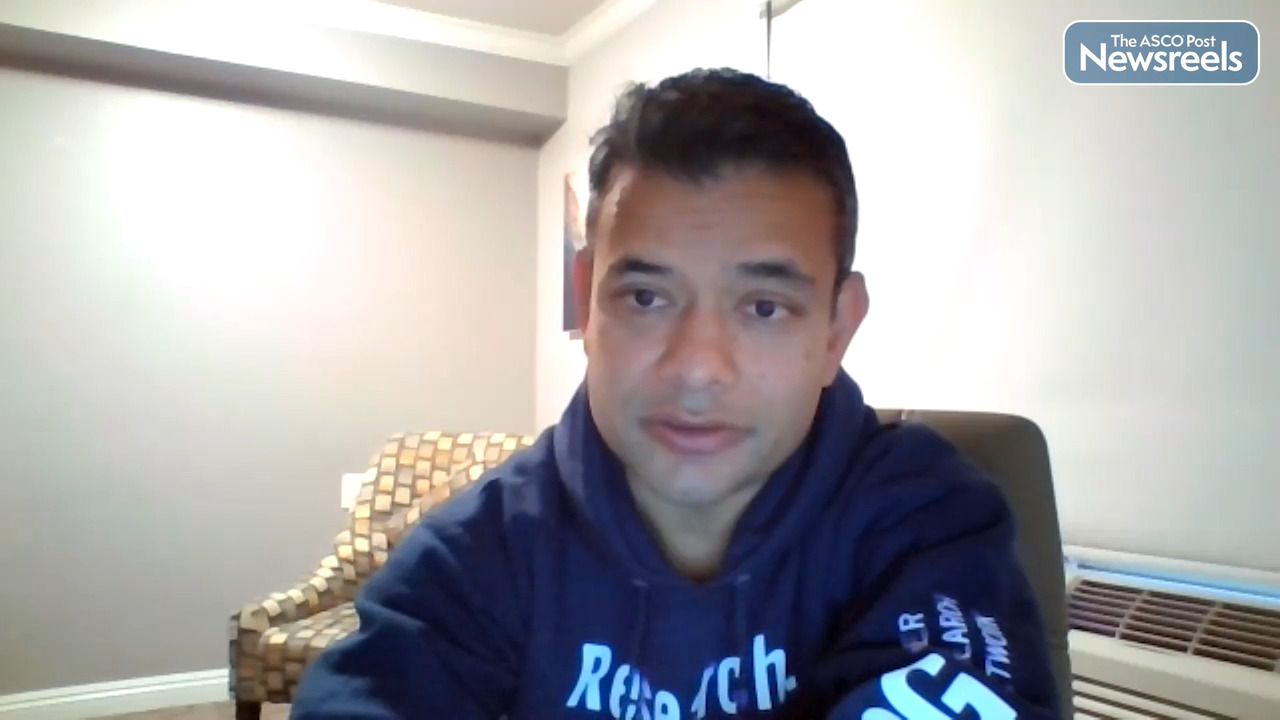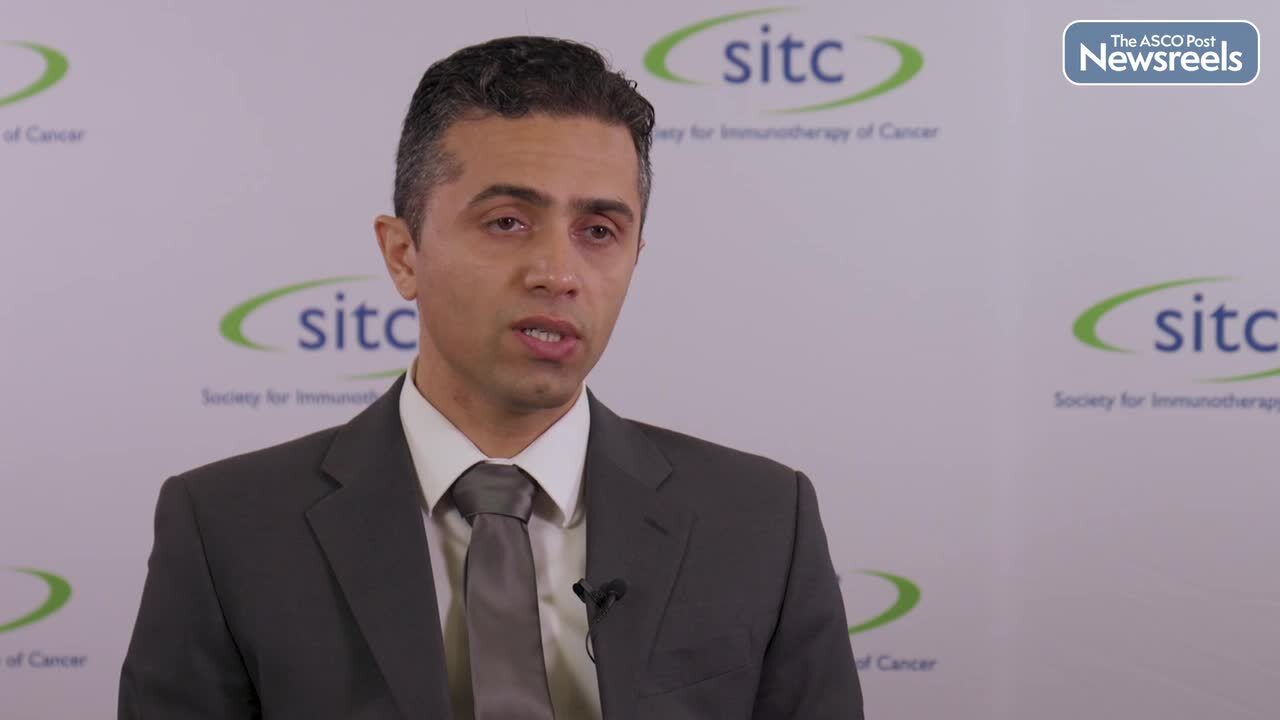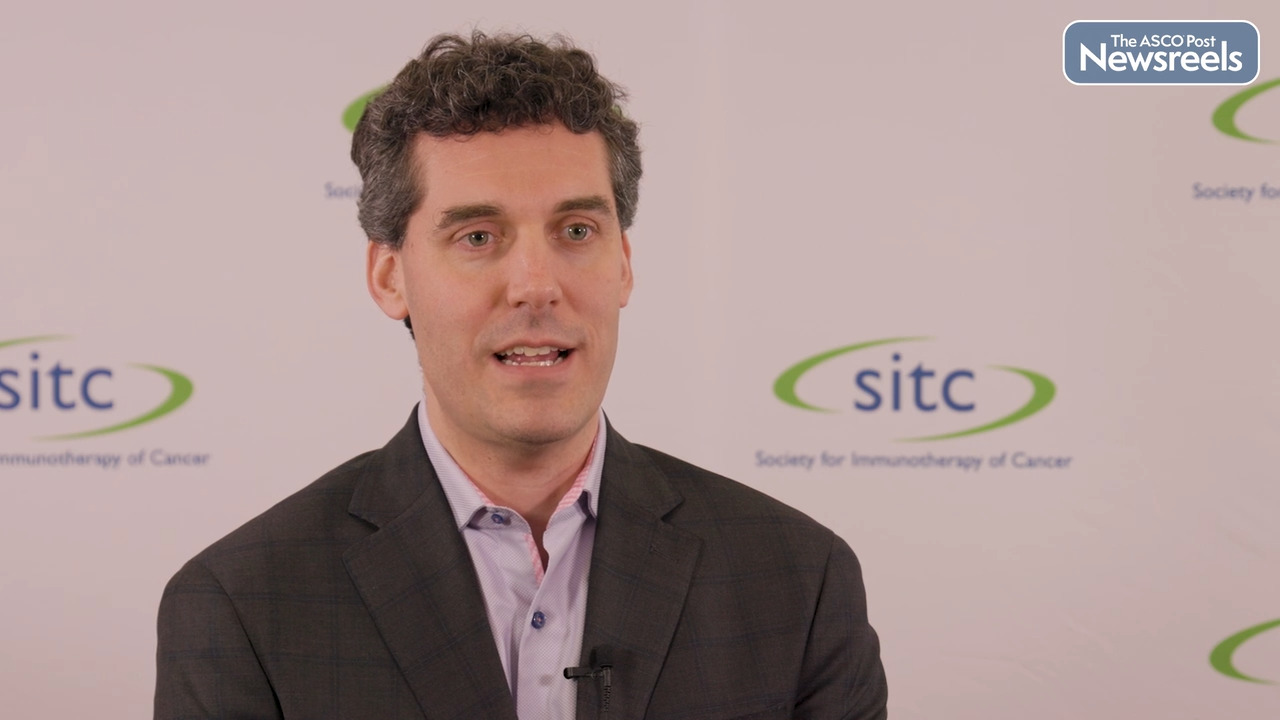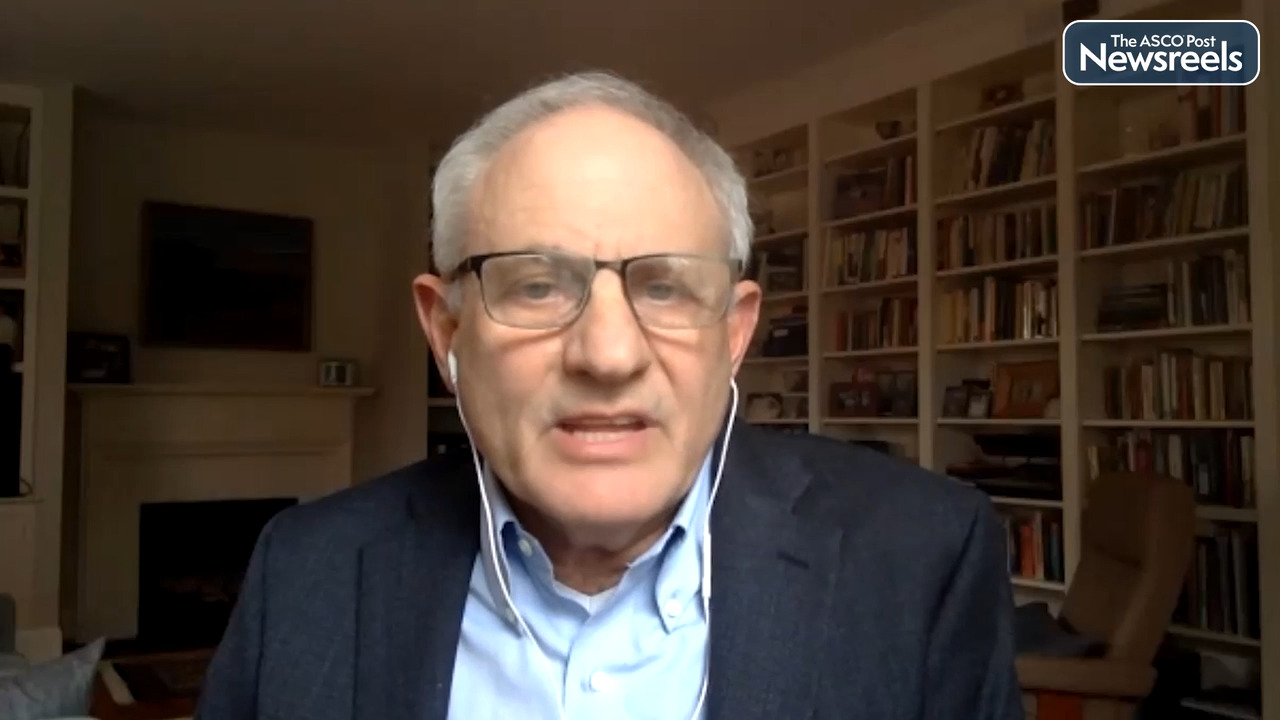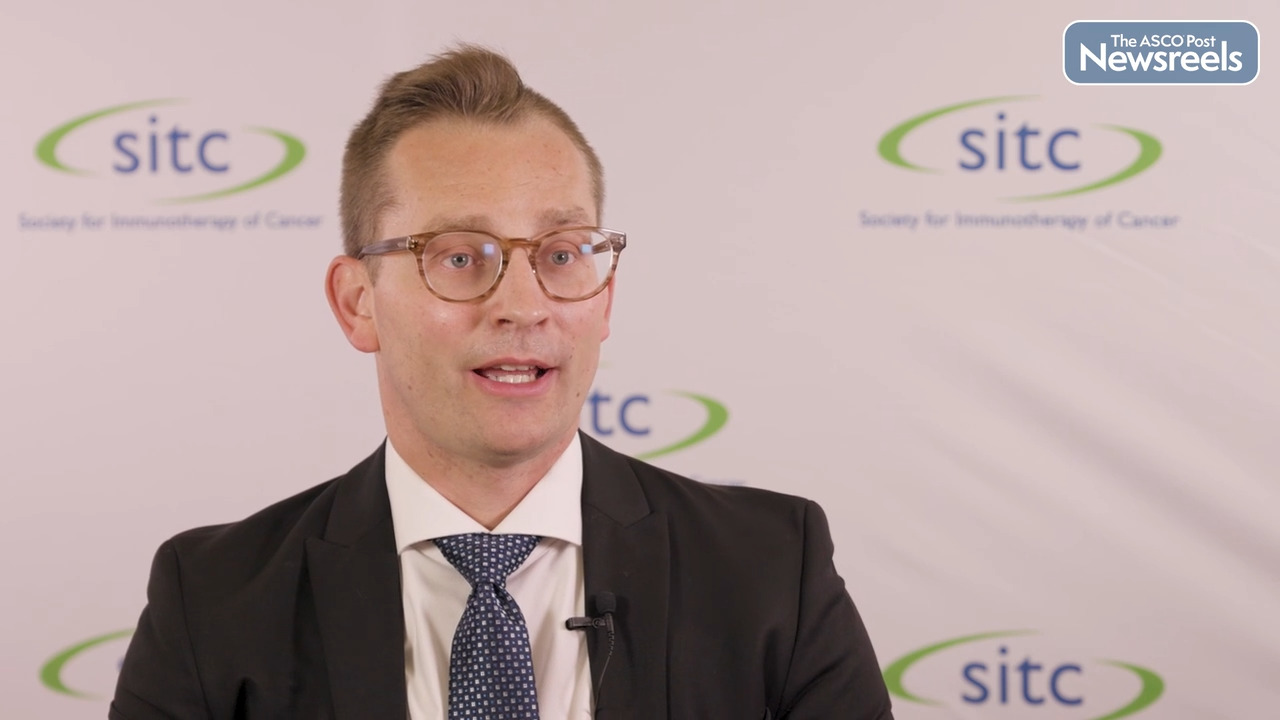Julia Tchou, MD, PhD, on Triple-Negative Breast Cancer: Radiation Boost Plus Pembrolizumab
SITC 2022
Julia Tchou, MD, PhD, of the University of Pennsylvania, discusses preliminary results of the phase Ib/II BreastVax study, which suggested a single preoperative pembrolizumab dose plus a tumor-targeting radiation boost may result in pathologic response in patients with early-stage triple-negative breast cancer (Abstract 644).
Transcript
Disclaimer: This video transcript has not been proofread or edited and may contain errors.
The reason why we think a single dose of Pembrolizumab plus a tumor-targeted radiation may work in patients with early-stage breast cancer is that we know that immune checkpoint inhibitor alone or as monotherapy does not work in breast cancer. We also know that we have to combine pembrolizumab with an immune stimulant such as chemotherapy, but because we really want to try to omit chemotherapy to deescalate treatment in this special population, which is early-stage breast cancer, we think that a single fraction of radiation boost may be effective as a combination with a single dose of Pembrolizumab prior to surgery.
The study is a window of opportunity study. We are evaluating three treatment arms prior to surgery. The arms one and two to examine the combination of radiation boost plus pembrolizumab. The difference between arm one and two is the sequence of the timing of the radiation versus pembrolizumab.
Arm one is radiation boosts first followed by pembrolizumab. Arm two is Pembrolizumab first, followed by radiation boost. And then the third arm is to evaluate pembrolizumab alone. That's the treatment. The three arms that we want to evaluate. And we want to look at this in patients with early-stage breast cancer without high risk features so that we can test whether this radiation combination with immunotherapy may be effective in this patient population.
So far, 13 patients have completed the study and 10 patients have triple-negative breast cancer. Among the 10 patients with triple-negative breast cancer, we observe that three patients have major response defined as tumor shrinkage. Of the three patients with significant tumor shrinkage, the tumor shrunk by about 80% or more. And in the three patients, one patient had complete pathologic response after a single dose of Pembrolizumab and one single tumor-targeting radiation given prior to surgery.
The next step is to continue to enroll patients into this study because this is considered still a very small sample size. We want to enroll more patients so that we can confirm our preliminary results, and we want to do additional molecular analysis to identify biomarkers associated with treatment response so that we can get to the next step to open a second study that look at patients with even earlier-stage disease.
The ASCO Post Staff
Sumanta Pal, MD, of the City of Hope Comprehensive Cancer Center, discusses phase I results from the COBALT-RCC study, a first-in-human clinical trial exploring CD70 CAR T-cell therapy in patients with clear cell renal cell carcinoma. The agent appeared to show an excellent safety profile with no unexpected toxicities and antitumor activity. One durable complete response is the first to be achieved with allogeneic CAR T-cell therapy in patients with relapsed or refractory solid tumors, offering proof of concept for further exploration of CD70-targeted CAR T cells in renal cell and other CD70-positive malignancies (Abstract 558).
The ASCO Post Staff
Saman Maleki, PhD, of Canada’s Western University and Lawson Health Research Institute, discusses modifying the gut microbiome in patients with advanced melanoma to induce a response to anti–PD-1 therapy and potentially reduce primary resistance to immunotherapy. A fecal microbiota transplant from healthy donors before treatment appears to be beneficial (Abstract 614).
The ASCO Post Staff
Michael A. Postow, MD, of Memorial Sloan Kettering Cancer Center, discusses new findings on the correlation between CD8 cell PET imaging with zirconium-89–crefmirlimab berdoxam and CD8 cell immunohistochemistry in patients with advanced cancer receiving immunotherapy. Noninvasive CD8 PET scanning with crefmirlimab berdoxam permits whole-patient, longitudinal CD8 assessment, which is currently under investigation as a biomarker for immunotherapy responsiveness and may be a useful tool for immunotherapy development and clinical management (Abstract 1472).
The ASCO Post Staff
Michael B. Atkins, MD, of Georgetown Lombardi Comprehensive Cancer Center, explores recent clinical trials in immuno-oncology in which the phase III trial produced markedly different results from the phase II trial. To help understand the potential value to patients of late-stage trials of treatment combinations, the Society for Immunotherapy of Cancer has developed a checklist for investigators, applicable to any regimen in which immune modulation is an important component of the antitumor effect.
The ASCO Post Staff
Wade T. Iams, MD, of Vanderbilt University Medical Center, discusses phase II efficacy results from the first-line non–small cell lung cancer cohort of the TACTI-002 study. The results suggest that when combined with pembrolizumab, eftilagimod alpha yielded encouraging efficacy across all PD-L1 levels, including patients with PD-L1 low and PD-L1 negative disease (Abstract 1470).
